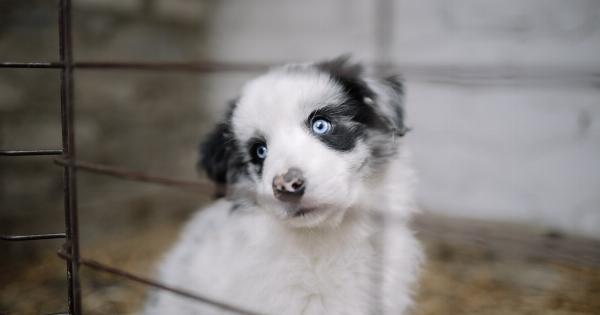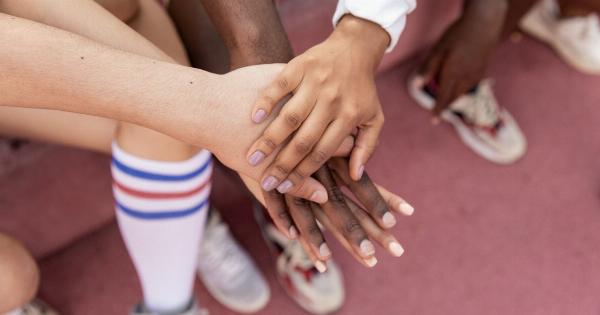Dogs are affectionate and loving pets, and it is natural for them to seek attention and affection from their owners. However, there are times when dogs exhibit sudden encouragement towards specific individuals, objects, or situations.
This kind of behavior can occur for many reasons, and it is essential to understand why a dog suddenly changes its behavior. There could be several reasons for this behavior, including fear, aggression, anxiety, or even jealousy. In this article, we will look into sudden encouragement and the signs of jealousy in dogs.
What is sudden encouragement in dogs?
Sudden encouragement is when a dog displays unusually positive behavior towards an object, person, or situation that they were previously afraid of, ignored, or showed anxiety towards.
It is not uncommon for dogs to exhibit sudden encouragement, and it often happens due to positive or negative reinforcement. For example, if a dog is rewarded or praised for a particular behavior, they are more likely to repeat the behavior in the future.
Similarly, if a dog is punished or scolded for a particular behavior, it is less likely to repeat the behavior in the future.
Why do dogs suddenly show encouragement?
There are many reasons why dogs suddenly show encouragement towards specific objects, people, or situations. Here are some common reasons:.
Fear response
Dogs can become fearful of specific objects, people, or situations if they have had a negative experience in the past. For example, a dog that was attacked by another dog may become fearful of other dogs.
In such cases, dogs may suddenly encourage a person or object that they perceive as a source of comfort or safety.
Aggression response
Dogs that feel threatened or feel like their territory is being invaded may exhibit aggressive behavior. They may bark, growl, lunge or bite.
In some cases, dogs may show sudden encouragement towards people or objects they perceive as a threat to their territory. For example, a dog may bark at an unfamiliar person who is approaching their territory, but then suddenly show encouragement towards them if the person displays nonthreatening behavior or is accompanied by the dog’s owner.
Anxiety response
Dogs that suffer from anxiety may show sudden encouragement towards objects, people, or situations they perceive as a source of comfort or safety.
For example, a dog that suffers from separation anxiety may become over-excited when their owner returns home, or a dog that suffers from noise phobia may become overly affectionate towards their owner during a thunderstorm.
Jealousy response
Dogs are social beings, and they form close bonds with their owners and other household members. Dogs can become jealous if they perceive that their owner is providing attention or affection to other dogs, people, or objects.
In some cases, dogs may show sudden encouragement towards the object of their jealousy, such as a toy or another dog, in an attempt to gain their owner’s attention or affection.
Signs of jealousy in dogs
Jealousy in dogs can manifest in many different ways. Here are some common signs to look out for:.
Aggressive behavior
Dogs that are jealous may become aggressive towards other dogs, people, or objects that they perceive as a source of competition for their owner’s attention or affection. Aggressive behavior can include growling, barking, lunging, or biting.
Anxious behavior
Dogs that are jealous may exhibit anxious behavior, such as pacing, panting, or whining. They may also display clingy behavior and follow their owner around the house, seeking attention and affection.
Destruction of property
Some dogs may become destructive if they are feeling jealous. They may chew or destroy objects that belong to the object of their jealousy, such as another dog’s toy or their owner’s favorite chair.
Loss of appetite
Dogs that are feeling jealous may lose their appetite or become picky eaters. This behavior can be a sign of stress or anxiety.
How to prevent jealousy in dogs
Preventing jealousy in dogs requires a multi-pronged approach. Here are some tips to help prevent jealousy in your dog:.
Offer plenty of attention and affection
Dogs crave attention and affection from their owners, and providing plenty of attention can help prevent jealousy. Spending time playing with your dog, going for walks, and cuddling can all help to strengthen your bond and prevent jealousy.
Training
Training your dog can help prevent jealous behavior. Teach your dog commands such as “sit,” “stay,” and “leave it” so that you can redirect their attention and prevent them from becoming jealous.
Exercise
Providing plenty of exercise can help prevent jealousy. Exercise can reduce stress and anxiety in dogs and promote feelings of well-being. Make sure to provide your dog with plenty of opportunities to play and run around.
Provide mental stimulation
Providing mental stimulation can help prevent boredom and reduce jealous behavior. Activities such as puzzle toys, agility training, and obedience training can all provide mental stimulation for your dog and prevent jealousy.
Avoid reinforcing jealous behavior
Avoid reinforcing jealous behavior by not giving in to your dog’s demands for attention or affection. Instead, wait until your dog is calm and relaxed before providing attention or affection.
Conclusion
Sudden encouragement and jealous behavior in dogs can occur for many reasons, including fear, aggression, anxiety, and jealousy. Understanding the signs of jealousy in dogs can help prevent aggressive or destructive behavior.
Providing plenty of attention and affection, training, exercise, mental stimulation, and avoiding reinforcing jealous behavior can all help prevent jealousy in dogs.






























